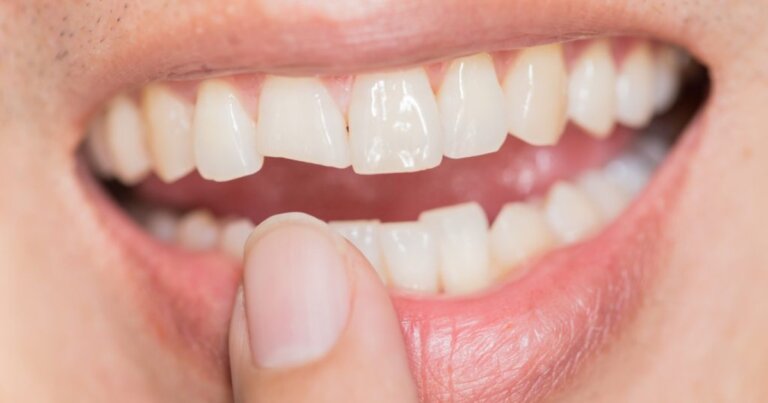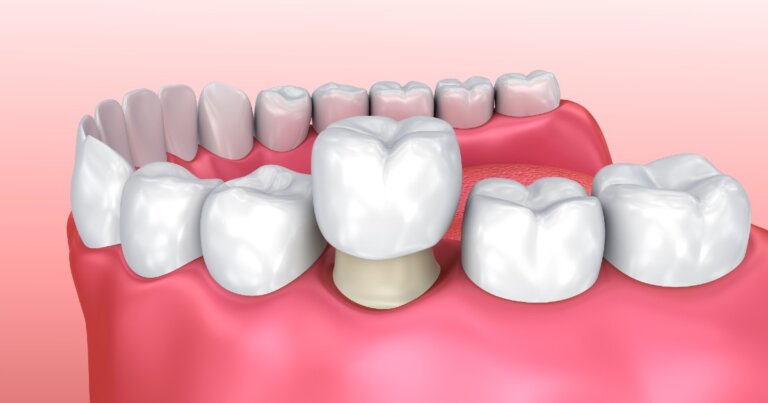Cracked Tooth

What Is A Cracked Tooth?
A Cracked Tooth is a common dental problem that can happen to anyone at any age. It occurs when a tooth has a break or crack on its surface, which may or may not be visible to the naked eye. Cracked teeth can range from minor cracks that affect only the outer enamel layer of the tooth to severe cracks that extend into the nerve space and down into the tooth roots.
A cracked tooth can be a painful and concerning dental condition, as it can lead to serious damage, even dental infection or tooth loss, if left untreated. Cracks in teeth can be caused by a range of factors, including dental trauma, tooth decay, parafunctional habits like teeth grinding, or normal wear and tear over time. Understanding the causes, symptoms, and treatment options for a cracked tooth is essential for maintaining optimal dental health. Before you contact a Toronto dentist to examine A Cracked Tooth, there are some things you should know as a patient:
- Why Do I Have A Cracked Tooth?
- Signs And Symptoms Of A Cracked Tooth
- Treatment Options For A Cracked Tooth
- How To Prevent A Cracked Tooth
- Managing A Cracked Tooth Until You Can See The Dentist
If you have questions about A Cracked Tooth or other dental problems, please contact us for more information.
Why Do I Have A Cracked Tooth?
There are several possible reasons why you might have a cracked tooth, including:
- Dental trauma: A sudden blow to the mouth or face, such as a fall or a sports injury, can cause a tooth to crack or fracture.
- Tooth decay: Tooth decay weakens the tooth structure, making it more susceptible to cracks and fractures.
- Chewing on hard objects: Using your teeth to bite or chew on hard objects such as ice, hard candy, or pens can cause cracks in your teeth.
- Teeth grinding: Habitual teeth grinding, also known as bruxism, can exert excessive force on the teeth, leading to cracks and fractures. Your dentist may recommend a dental night guard for you.
- Age-related wear and tear: Over time, your teeth can become weaker and more prone to cracking due to everyday wear and tear.
- Large dental fillings: Teeth with large dental fillings (especially ones where the filling makes up more than 50 percent of the visible surface of the tooth or posterior molars that sustain heavy biting forces) can make the tooth weak and susceptible to catastrophic cracks. A dentist may recommend putting a preventative dental crown to cover and reinforce the tooth from future fractures.
- Root canal treated teeth: Teeth that have undergone root canal treatment no longer have the blood vessels that run through the tooth that provide it with nutrients and moisture. This makes the tooth more brittle and susceptible to cracks and fractures. A dentist may recommend putting a dental crown on your root canal treated tooth to cover and reinforce it from future cracks.
Understanding the potential causes of a cracked tooth can help you take steps to prevent future damage and preserve your dental health. If you have further questions about A Cracked Tooth, please contact us.
Signs and Symptoms of a Cracked Tooth
If you have a cracked tooth, you may experience one or more of the following signs and symptoms:
- Pain when biting or chewing: A key indicator of a cracked tooth is the feeling of discomfort, sharp pain or throbbing, aching pain when you bite or chew, especially upon release of the biting force.
- Sensitivity to hot or cold temperatures: A cracked tooth exposes the inner dentin layers and possibly the nerve of the tooth to the outside environment, which can cause tooth sensitivity, especially when exposed to hot or cold temperatures.
- Pain or sensitivity when consuming sweet foods: A cracked tooth can also cause pain or sensitivity when consuming sweet foods or beverages.
- Visible crack or chip in the tooth: Depending on the location and severity of the crack, it may be visible to the naked eye, or it may only be detected with dental x-ray imaging.
- Inflammation or redness of the gums: In some cases, a cracked tooth can cause inflammation or redness of the gums surrounding the affected tooth.
If you are experiencing any of these signs or symptoms, it is important to seek prompt dental treatment to prevent further damage or infection. If you have further questions about signs and symptoms of a Cracked Tooth, please contact us.
Treatment Options for a Cracked Tooth
The treatment for a cracked tooth depends on the location, severity, and extent of the crack. Here are some of the treatment options available:
- Dental crown: A dental crown is a tooth-shaped cap that is placed over a tooth to protect it from further damage and restore its function. Crowns are typically made of materials such as porcelain, ceramic, or metal, and are designed to last for many years with proper care. They are bonded to the tooth using a special dental cement. For small cracks that only penetrate the superficial enamel layer of the tooth, a dental crown is usually sufficient to eliminate tooth pain. However, if the crack is deep and you still feel pain even after dental crown treatment, a root canal may be needed to save the tooth.
- Root canal treatment: If the crack extends to the pulp of a vital tooth, a root canal may be necessary to remove the damaged nerve tissue and replace it with a root canal filling. Your dentist will also recommend a dental crown to protect the tooth from further damage or infection. Sometimes, if the crack is very deep and you still feel tooth pain in spite of having root canal treatment and a dental crown, the last resort will be to remove the tooth.
- Tooth extraction: In severe cases where the crack is too extensive to be repaired, the affected tooth may need to be extracted. Missing teeth can be replaced with dental implants, dental bridges or dentures.
If you have a cracked tooth, it is important to seek prompt dental treatment to prevent further damage. Your dentist can help you determine the best course of treatment based on the extent and severity of the crack.If you have further questions about how to treat a Cracked Tooth, please contact us.

How to Prevent a Cracked Tooth
Preventing a cracked tooth starts with adopting good oral hygiene habits and taking steps to protect your teeth from damage. Here are some tips to help you prevent a cracked tooth:
- Practice Good Oral Hygiene: Brush your teeth twice a day with fluoride toothpaste and floss daily to remove food particles and plaque from your teeth. The Waterpik waterflosser is also a terrific adjunctive tool to keep your teeth clean.
- Visit Your Dentist Regularly: Schedule regular dental checkups and teeth cleanings to catch any problems early on and address them promptly. If you have old fillings that are worn or damaged, talk to your dentist about replacing them before they become loose or fall out.
- Wear a mouthguard: If you play sports or engage in activities that increase your risk of dental trauma, wear a mouthguard to protect your teeth from impact.
- Avoid chewing on hard objects and foods: Refrain from using your teeth to bite or chew on hard objects, such as ice, hard candy, or pens. Additionally, hard and sticky foods can damage teeth and weaken the tooth’s structure.
- Seek prompt dental treatment: If you experience any signs or symptoms of a cracked tooth, seek prompt dental treatment to prevent further damage or infection.
By taking these steps to prevent a cracked tooth, you can help protect your dental health and avoid the need for costly and invasive dental treatments in the future. If you have further questions about how to prevent a Cracked Tooth, please contact us.
Managing a Cracked Tooth Until You Can See the Dentist
If you suspect you have a cracked tooth and cannot see your dentist immediately, there are some steps you can take to manage the symptoms and prevent further damage. Here are some tips to help you manage a cracked tooth until you can see the dentist:
- Use Over-the-Counter Pain Medication: Over-the-counter pain medication, such as Advil (ibuprofen) or Tylenol (acetaminophen), can help relieve tooth pain or sensitivity from a cracked tooth. Follow the instructions on the label and do not exceed the recommended dose. Unless you have a health condition that prevents you from taking either ibuprofen or acetaminophen, the absolute maximum dose that I recommend patients take for the worst dental pain is 600 mg ibuprofen combined with 1000 mg acetaminophen every 4 to 6 hours.
- Practice good oral hygiene: Keeping the area around the cracked tooth as clean as possible can help prevent further decay and alleviate some of the pain or sensitivity. Brush and floss gently around the tooth. Rinsing your mouth with warm salt water or mouthwash can help reduce infection, inflammation and alleviate toothache pain. You can buy any mouthwash available at your pharmacy or health foods store. Alternatively, you can mix a teaspoon of salt in a cup of warm water and swish the solution around your mouth for about 30 seconds before spitting it out.
- Avoid Hot And Cold Foods: Foods that are too hot or too cold can cause tooth sensitivity and pain. Choose room temperature foods so as not to irritate the sensitive cracked tooth.
- Avoid Hard And Sticky Foods: Cracked teeth are vulnerable to more damage, so it is prudent to avoid hard, crunchy and sticky foods that can weaken the tooth’s structure.
- Avoid Chewing On The Damaged Tooth: Favor using the other side of your mouth as not to further damage the cracked tooth.
- Apply a cold compress: Apply a cold compress to the affected area to help reduce any swelling and alleviate pain.
- Chew on the opposite side of your mouth: When you eat or chew, try to use the opposite side of your mouth to avoid putting pressure on the affected tooth.
It is important to remember that these tips are temporary measures and should not replace a visit to the dentist. Seeking prompt dental attention is crucial to prevent further damage or infection to a cracked tooth. If you have further questions about how to manage a Cracked Tooth, please contact us.

